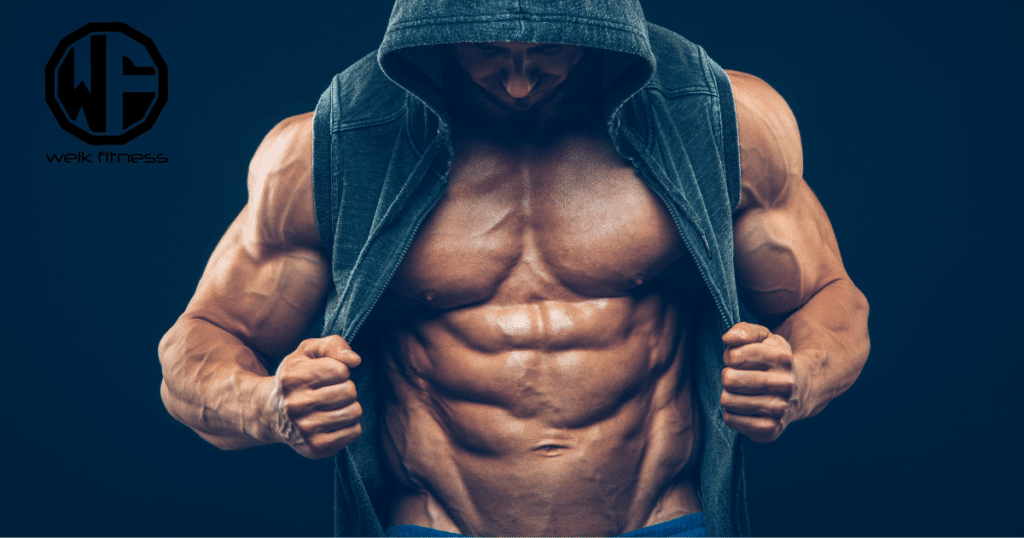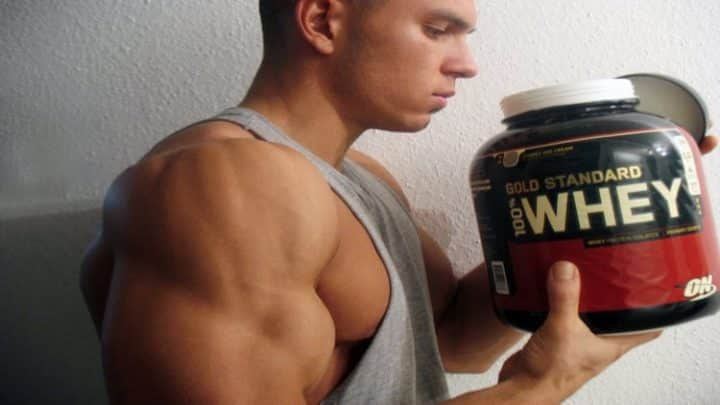Sponsored Athletes: Are They Worth the Money?
As a business owner, you constantly see supplement companies signing sponsored athletes to promote their products. It’s a massive industry, with the global sports sponsorship market projected to reach over $114 billion in 2025. But does shelling out huge money for a famous face actually provide a return on your investment?
In my decades of experience as a certified sports nutritionist and strength coach, I’ve seen this from every angle. The simple answer is that for most brands, traditional high-cost athlete sponsorships are a losing game.
This guide will break down the real numbers, explore why authenticity is collapsing, and show you smarter, more effective strategies to grow your brand without breaking the bank.
Table of contents
Key Takeaways
- High Costs, Low Trust: Mega-deals with top athletes often cost six figures but face declining consumer trust, making the return on investment (ROI) questionable for most brands.
- Authenticity is a Myth: Many top bodybuilders and athletes use performance-enhancing drugs, making their endorsement of supplements misleading and inauthentic to educated consumers.
- Micro-Influencers Offer Better ROI: Partnering with smaller, niche influencers with high engagement rates can be far more cost-effective and generate a more authentic connection with your target audience.
- Product Quality Over Star Power: Your primary investment should be in creating high-quality, effective products with certifications like NSF or Informed-Sport, which builds long-term brand credibility.

What Are Sponsored Athletes?
Sponsored athletes are professionals who receive support from a company in exchange for promoting its brand and products. This isn’t just about a paycheck. The support can include free products, travel expenses, and financial compensation, which are all crucial for funding a high-level athletic career. For you, the business owner, it’s a marketing strategy designed to leverage the athlete’s reputation to boost your brand’s visibility and credibility.
Key Aspects of Sponsored Athletes
- Financial and Product Support: Athletes might get a monthly stipend or a significant salary, plus all the supplements they need. This helps them focus on training without financial stress.
- Brand Ambassadorship: They become the face of your brand. This means appearing in your ads, posting on social media, and showing up at events like the Arnold Sports Festival or Mr. Olympia.
- Performance Bonuses: Many contracts include bonuses for winning major competitions. This incentivizes top performance, which in turn brings more exposure to your brand.
- Contractual Obligations and Morality Clauses: The relationship is governed by a contract. This includes mandating the use of specific hashtags like #ad or #sponsored to comply with Federal Trade Commission (FTC) guidelines. It also almost always includes a “morality clause,” allowing you to terminate the contract if the athlete engages in behavior that could damage your brand’s reputation.
Benefits for Sponsors
- Increased Brand Visibility: When an athlete with millions of followers posts about your product, your brand’s reach expands instantly.
- Enhanced Credibility: An endorsement from a respected athlete can build trust. Research shows 78% of sports fans are more likely to buy a product endorsed by their favorite athlete.
- Access to New Markets: Partnering with an athlete gives you a direct line to their dedicated fanbase, a highly engaged and specific demographic.
Examples of Sponsorship
- The Gold Standard (Nike and Michael Jordan): This is the most legendary partnership in sports history. Nike didn’t just sponsor Jordan, they built an entire billion-dollar brand, Air Jordan, around him, transforming sports marketing forever.
- The Modern Powerhouse (Chris Bumstead and Raw Nutrition): A perfect supplement industry example. In 2021, five-time Mr. Olympia Classic Physique champion Chris Bumstead became a co-owner of Raw Nutrition. This is more than a sponsorship, it’s a partnership that gives both sides immense credibility and has helped Raw Nutrition become one of the fastest-growing brands in the industry.
- The Community Builder (Gymshark): Gymshark bypassed traditional athletes and instead built its empire by sponsoring fitness influencers who were genuine fans of the brand. This strategy created an authentic community and turned them into a billion-dollar company.
What to Look For in a Sponsored Athlete
- Authentic Brand Alignment: Does the athlete genuinely fit your brand’s values? An athlete who promotes a clean, natural lifestyle shouldn’t be the face of an extreme, stimulant-heavy pre-workout. Misalignment feels inauthentic and consumers will see right through it.
- Audience Engagement Over Follower Count: Don’t be fooled by millions of followers. An athlete with 100,000 highly engaged fans who comment and share is far more valuable than one with 2 million passive followers. Look for engagement rates above 3%, athletes on social media average a 5.6% engagement rate, which is much higher than typical influencers.
- Professionalism and Reliability: You need a partner, not a liability. Do your research. Check their past sponsorships and see how they represented those brands. Are they professional and easy to work with? A difficult athlete can become a drain on your resources, no matter how famous they are.

Does Anyone Actually Believe Sponsored Athletes Use the Product?
Let’s be blunt. Years ago, consumers might have believed that their favorite bodybuilder’s success was due to a specific supplement brand. But today’s buyers are more educated. They know a Mr. Olympia title isn’t won because of a certain protein powder. Do you really think an NFL linebacker built his career on a particular line of products? Of course not.
Many sponsored athletes don’t even use the products they endorse. Sure, they might use staples like protein powder or creatine from your line, but let’s call a spade a spade. Top-tier physiques in bodybuilding are often achieved with anabolic steroids and other performance-enhancing drugs, not just over-the-counter supplements.
Tying your brand’s reputation to a physique that is unattainable for the average consumer through supplements alone is a risky business strategy that can damage your credibility.
So why do they do it? It’s simple: money. Elite athletes know their victories make them valuable. They can secure lucrative deals to push products to their followers, regardless of whether they believe in the products themselves. It’s a financial transaction, and as a business owner, you need to see it that way too.
Sponsored Athletes Get Paid WHAT?!

The numbers can be staggering. When I was with MET-Rx, we had Phil Heath as an athlete, and for business reasons, we parted ways. He later signed with MuscleTech for a reported $500,000. From a business perspective, paying any athlete that much was, and still is, a waste of money. No single athlete can generate a direct half-million-dollar return in supplement sales. It just doesn’t happen.
Let’s put this in perspective for your business. Instead of spending six figures on one big name, you could build a team of micro-influencers for a fraction of the cost.
| Sponsorship Type | Typical Annual Cost | Primary Benefit |
|---|---|---|
| Mega-Star Athlete | $100,000 – $500,000+ | Massive (but shallow) Reach |
| Micro-Influencer (10k-60k followers) | $1,500 – $10,000 | High Engagement & Trust |
For the price of one top-tier bodybuilder, you could hire a dozen smaller, more authentic creators who have a deeper, more trusting relationship with their followers. Reports show that marketing campaigns using athletes can generate a high return on investment, but this is often measured in “Earned Media Value” (EMV), not direct sales. EMV is an estimate of what the exposure would have cost if you paid for it as advertising. While useful, it doesn’t directly translate to cash in your pocket.
Does the Owner Even Work Out?

So why do so many company owners still sign these massive checks? Often, it’s because they are business people first and fitness experts second, if at all. They enter the industry thinking a big-name athlete is a shortcut to success, and they end up burning through cash while the athletes laugh all the way to the bank.
A much smarter investment for a new or growing brand is to focus on product quality and third-party validation. Building credibility from the ground up is more sustainable than renting it from a celebrity.
- Invest in Formulation: Put your money into creating a genuinely effective product. Work with experienced formulators and use high-quality, patented ingredients.
- Get Certified: Earn certifications like NSF Certified for Sport® or Informed-Sport. These third-party seals of approval guarantee your product is free of banned substances and meets label claims. This is how you build real trust with serious athletes and consumers.
While some athletes genuinely love a brand, those partnerships are rare. Most consumers today are savvy. They know that an athlete’s physique isn’t the result of a single product. Relying on this outdated marketing tactic can make the supplement industry seem deceptive.
Sex Sells with Sponsored Athletes
There is one area where using athletes, particularly female fitness models, has historically worked: grabbing attention. Marketing is about getting eyeballs on your product, and sex sells. Look at some of the ads from the past. Gaspari Nutrition ran a legendary campaign for their product Halodrol with fitness model Marzia Prince. The tagline, “The most sought after box on the planet,” was pure genius. It was provocative and unforgettable.
It got everyone’s attention and made them aware of the Gaspari brand and Halodrol. This strategy isn’t really selling the product’s benefits, it’s selling brand awareness in its rawest form.
However, this tactic is becoming less effective. While it might grab the attention of a certain male demographic, modern consumers, especially younger generations, often respond better to authenticity and community-focused marketing. Brands like Gymshark built their empires not on provocative ads, but on creating a “family” of relatable influencers and customers. This approach builds long-term loyalty that an edgy ad campaign simply can’t match.
The key takeaway is that you don’t need expensive sponsored athletes to build a successful brand. Focus on a great business model, an expert marketing team, and products that actually deliver results. A quality product will eventually sell itself through word-of-mouth and genuine customer loyalty. Don’t be fooled by the big names. Most of them are just focused on getting paid.
Sponsored Athletes FAQs
How much does it cost to sponsor an athlete?
The cost varies dramatically. A top-tier professional athlete or bodybuilder can command a six-figure salary ($100,000+). In contrast, a micro-influencer with 10,000 to 60,000 followers might charge anywhere from $100 to $1,500 per post, or work in exchange for free products.
What is the real ROI on sponsoring an athlete?
Direct sales ROI is very difficult to track. Most brands measure success through metrics like “Earned Media Value” (EMV), which calculates the value of the social media exposure. While campaigns with athletes can generate a high return in media value, this doesn’t always translate into a profitable return in actual sales.
Are micro-influencers a better choice for supplement brands?
For most brands, yes. Micro-influencers typically have higher engagement rates and a more authentic connection with their audience. You can partner with multiple micro-influencers for the cost of one major athlete, reaching more niche, targeted audiences and building more genuine brand trust.
What are the biggest legal risks with sponsored athletes?
The two biggest risks are failure to disclose and brand reputation damage. The FTC requires that any paid endorsement must be clearly disclosed with terms like #ad or #sponsored. Additionally, if your sponsored athlete is involved in a scandal, a “morality clause” in your contract is crucial to allow you to terminate the partnership and protect your brand.


*Disclosure: This article may contain affiliate links or ads, which means we earn a small commission at no extra cost to you if you make a purchase through these links. These commissions help support the operation and maintenance of our website, allowing us to continue producing free valuable content. Your support is genuinely appreciated, whether you choose to use our links or not. Thank you for being a part of our community and enjoying our content.
PLEASE CONSIDER SHARING THIS ON YOUR SOCIAL MEDIA TO HELP OTHERS LEARN MORE ABOUT THIS TOPIC.





